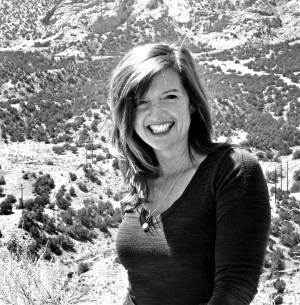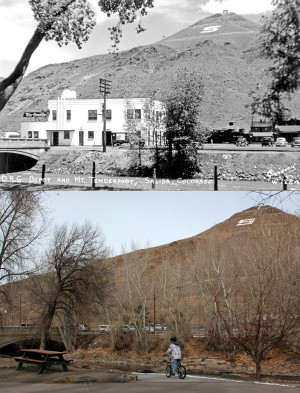by Martha Quillen
We’ve all heard about people looking for love in all the wrong places. But where are you supposed to look for purpose in your life? At work? Home? Or Walmart? From family? Friends? Or religion? Through email? Or on Facebook?
My husband died in June and my mother in December, and I keep wondering what I’m supposed to be doing. A lot of what I thought I’d be doing, I won’t be, and much of what I’ve always dreamed about doing suddenly seems irrelevant.
“This too shall pass,” I tell myself in an attempt to squelch the unsettling feeling that I have no idea what I want to do. This feeling is not the same as grief, which fosters disbelief, shock, loneliness and yearnings for the person you’ve lost. This sense that life has lost its purpose feels more like a void.
I suspect a lot of things can make you question where you’re going – and why – including grief, divorce, retirement, financial reverses, moving, being jilted, being fired or coping with serious illness. Eventually, most people must lose their bearings a time or two, and they probably do exactly what I’m doing, which is ….
Well, nothing much. On the off chance that I might happen across a formula for reestablishing the meaning in my life, I’ve been reading things that I never would have read before (including ten books on grief and a lot of memoirs). I’ve also talked to more people, and gone more places, and joined Facebook, where I marvel at all of the different sorts of postings people make. (But I have yet to make a single personal status update, doubtless because I don’t have any interesting answers to those ubiquitous Facebook queries: “What’s going on, Martha?” “How are you doing, Martha?”)
Otherwise, I sleep, eat, go to work and take walks, which is nothing new. I have always walked a lot, especially here in Central Colorado where the views are sublime. When you round a corner and gaze upon a scene you’ve seen a hundred times before, and you are still totally awed by it, you know you’re in God’s country. Except on another trail on another day, I encounter some old box springs, rusted cans and shell casings and wonder what we’re doing to this place. Then a few days later, I jog around a corner and find a line of mountain bikers racing toward me, and I know: We are converting it into a gymnasium.
But that’s what I love about Central Colorado. It isn’t heaven – or even Aspen or Vail. It isn’t thoroughly covenanted, gated and manicured; we’ve still got weeds, barking dogs and ramshackle trailers. When people here argue about recreational usage and community improvements, nobody ever wins, so we’ve still got it all: rafting, kayaking, biking, hiking, snowmobiling, noise, smoke, wood stoves, ATVs, new modular homes and starter mansions, logging operations, industrial sites, ranches, wilderness, and views so spectacular they take your breath away.
In May, Ed and I went to visit our girls and grandkids in Oregon, and I thought maybe we should move there after we retired. But when we got back everything was so beautiful and familiar that I couldn’t imagine us living anywhere else.
Ed died two weeks later.
In October, my Mom was still driving around Dallas, an alert, funny nonagenarian who loved to go to lunch with friends. The day after Thanksgiving I flew down to Texas because she had collapsed and was in home hospice care. My mother was 91 when she died in mid-December.
My mother viewed herself as lucky, and I wouldn’t disagree with that – even though her last weeks were tough. Other people have told me that Ed was lucky, too, because he went out the way they would like to go: very quickly. I have no idea what Ed would think about that. For totally selfish reasons, I prefer to think that he would have rather been here with me a little longer. But the last year has shown me that life doesn’t always deliver what you expect or want.
It’s hard to formulate new plans and find a renewed raison d’etre after death has shaken your sense of who you are, but I am starting to understand that there are good things about losing your sense of purpose – even though it feels awful.
In June, July and August, I didn’t watch or read any news, a novelty for me. But I heard things. Mostly people warned me that the U.S. was doomed. “If that Obama wins again, this won’t be America anymore,” three people told me in a single day, which I assumed must have been due to a FOX News program. According to the other camp, Romney was going to slash funding for everything – Social Security, Medicare, parks, national forests, health, education, welfare, the arts, humanities and Planned Parenthood, all gone – so that the rich wouldn’t have to pay taxes any more .
When I finally tuned back in, the 2012 political season featured some of the craziest campaigning imaginable. It was the first election year in my memory where anti-contraception proposals were more common than anti-crime proposals – because several Republicans were campaigning not just against abortion but also birth control. Mitt Romney felt sorry for himself because he and his friends had to pay more income tax than most people (due to their high incomes, of course). Meanwhile, Obama proudly positioned himself as the modern-day commando who’d brought down Osama bin Laden.
The election came and went, but the campaigning continued. By 2013, the NRA was defending the Constitutional right of every madman to wield paramilitary weapons. In February, outgoing Secretary of State Hillary Clinton quipped that there were some people in politics and the press who refused to be confused by facts. “They just don’t live in an evidence-based world,” she contended, and everybody knew exactly what she meant.
Whether Republicans admitted it or not, debate and discussion were no longer relevant to Congressional hearings. Grandstanding is the new modus operandi.
In Salida, a newspaper contretemps arose about whether local citizens are polite enough when dealing with their elected officials. I hadn’t been following recent issues, but whenever the topic becomes who is being rude, impertinent and dismissive, I figure it’s a safe bet that both sides are guilty. Likewise, when angry citizens start showing up at council meetings en masse, I think it’s safe to assume that those citizens think their government officials are either serving themselves or a small faction of the population rather than the majority. And when the citizens grow irate, government officials might do well to examine their priorities – and perhaps even follow my lead and look for a new sense of purpose.
Not likely, huh?? Yeah, well they are only human. It would be nice, however, if government officials worried a little more about the repercussions of promoting secession, revolution, taking up arms and jumping off fiscal cliffs.
During the last few months I have begun to regard my uncertainty as a wise course. No, I am not sure what I want, but to look at the bright side, I have no grand, dictatorial ideas about what all of you should do or have, either.
Perhaps, however, it’s hard for U.S. Representatives to gain any perspective, living as they do where there are no fourteeners in sight.



